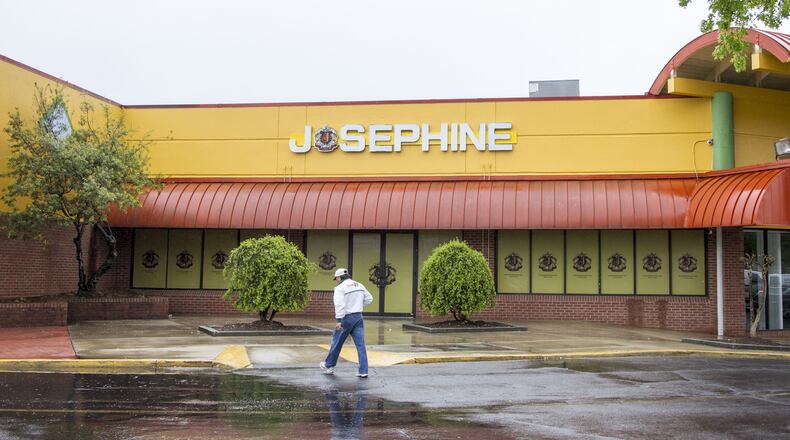The city of Brookhaven’s new liquor law is written in a way that penalize clubs catering to blacks and Latinos, an attorney representing three nightclubs argued in federal court on Tuesday.
The three nightspots — Medusa Restaurant & Lounge, XS Restaurant and Lounge, and Josephine — were all told by the city that they now should be classified as entertainment venues and not restaurants because they have dance floors, stages and DJs playing music. As a result, the city is requiring them to pay $100,000 for their liquor licenses instead of $4,900.
Their attorney, Cary Wiggins, argued forcing the clubs to pay more than other venues just because they have pre-recorded music rather live performances violates their constitutional rights. He asked the judge to prohibit the city from enforcing the new law, which went into effect at the end of 2017.
“The city has absolutely no business coming in and telling these businesses what kind of music and art they can have,” Wiggins said.
U.S District Judge Thomas W. Thrash Jr. did not make a ruling on Wiggins’ request. While the law is being challenged, the clubs have been allowed to operate under the old rules.
Other venues received similar letters from the city and are waiting for the Brookhaven Alcohol Board to consider their appeals. Wiggins' filed lawsuits in state and federal court on behalf of his clients after the Alcohol Board denied theirs appeal.
Brookhaven filed its own motion to dismiss the case brought by the nightclubs. Thrash also said he will take that into consideration as he decides how to proceed.
The city’s attorney argued that the three clubs don’t qualify as restaurants for other reasons beyond the music issue, including their proximity to residential areas and not having a high enough percentage of their sales coming from food.
Attorney Scott Bergthold, who is representing the City of Brookhaven, said the new liquor law has been applied evenly and was not meant to single out certain nightclubs. He said the city established the higher liquor license fees to force nightclubs responsible for most of the emergency calls for service to reimburse the city for law enforcement costs.
But the judge pointed out that the Pink Pony strip club was being allowed, through a separate agreement with Brookhaven, to operate until 4 a.m. despite the number of calls police receive to respond there.
“If the city is trying to cut down on crime, it can cut Pink Pony’s hours,” Thrash said.
Liquor laws also are being challenged in Chamblee, Brookhaven's neighbor to the east. Last week, Thrash, who is also the judge in that case, decided not to issue an emergency order barring the city from enforcing new rules saying nightclubs must stop serving alcohol at 2 a.m. instead of 3 a.m.
Brookhaven also rolled back bar hours in its new law.
About the Author
Keep Reading
The Latest
Featured




